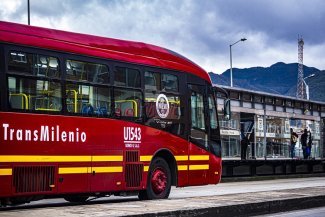
Yesterday, high-level representatives from 40 countries met in Berlin to discuss and plan a coordinated response to the Syrian refugee crisis, described by Antonio Guterres, the United Nations High Commissioner for Refugees, as “the biggest humanitarian emergency of our era.”
An estimated six million people are internally displaced, while 3.6 million people have sought refuge outside Syria as a result of the conflict.
The neighbouring countries have been the most affected by the influx of refugees.
In Egypt, the response has been uneven, and for some refugees may actually be contrary to international law.
Five Palestinian-Syrians detained while trying to illegally travel from Egypt’s north coast by boat are now facing deportation from a detention centre in Alexandria, back to the warzone they originally fled – Syria.
While lawyers and human rights organisations attempt to halt the deportations, the case reveals the often dire experiences of Palestinian-Syrians attempting to flee the civil war.
"We were told we’re not welcome in the country, but they didn’t give us a valid reason [for the deportations]," explains 32-year-old Khaled, who lost his wife, brother and son to the September 10 Malta boat tragedy before trying to travel by the sea himself.
Khaled speaks by telephone from inside a detention centre in Alexandria.
Abdullah, 22, and his 14-year-old brother, Omar, were detained at the same time. They say they arrived legally in Egypt recently from Lebanon.
Youssef, 23, took the same boat as the other three, but had been living in Egypt since October 2012 on a student visa.
Ramy, 27, was detained from another boat on September 17.
"First, when I arrived, I thought: ’No problem. I’ll be out; it’s just a matter of a few days’," Ramy explains. "After sitting here for one week, 10 days…then I realised that I’m just staying here until I get my plane ticket back to Syria."
This is the choice the Egyptian authorities have given them: buy a ticket or go to prison. Cases like this are processed by the Interior Ministry and State Security, who ultimately give release or deportation orders.
The Interior Ministry was unavailable for comment on the details of the case.
Muhammad Kashef, who documents migrant detentions at the Egyptian Initiative for Personal Rights (EIPR) in Alexandria, admits there may be "something missing from the story" – meaning the authorities may feel they have justifiable security reasons for the deportations.
Or, it could be a symptom of Egypt’s human rights landscape and the special case of being Palestinian refugees from Syria, he adds.
"There is no country that will allow them to travel for security reasons," Kashef explains, referring to recent decisions by Lebanon and Turkey to not accept Palestinian-Syrians. Jordan has also reportedly deported or refused entry to around 100 Palestinian-Syrians attempting to cross the border from Syria, according to Human Rights Watch. Similar problems exist in Egypt.
"The situation is horrible, even for us [Egyptians]," he says. "Maybe that’s it, or maybe as they’ve deported Palestinians to Gaza, they’re deporting Palestinian-Syrians to Syria."
According to Amnesty International, five more Palestinian refugees from Syria are currently detained at Cairo airport, threatened with deportation back to Syria or Gaza. Sixty-eight Palestinians were deported back to Gaza from detention in Alexandria two weeks ago. But arguably, deporting refugees back to Syria is more serious.
Refugee protection
The 1951 Convention Relating to the Status of Refugees (otherwise known as the Refugee Convention), to which Egypt is a signatory, states: "No one shall expel or return ("refouler") a refugee against his or her will, in any manner whatsoever, to a territory where he or she fears threats to life or freedom."
Sending refugees back to their origin countries where they fear "threats to life or freedom" constitutes refoulement. Stopping this is a central tenet of international agreements on refugee rights.
The men fear what is waiting for them there. Because they are all Palestinian refugees from the 1948 Nakba ("catastrophe"), in which an estimated 90,000 Palestinians fled to Syria, they would all be eligible to join Syria’s Palestine Liberation Army (PLA) on return.
Ramy is adamant he cannot return. On Mother’s Day this year he says his cousin, sister-in-law and daughter were killed in a regime air strike. He fears going back to a place marred by tragic memories and the spectre of military conscription.
"I can’t go back because I already buried my daughter there," he says. "And because [the Syrian army] needs reserve soldiers, I’ll have to serve again."
"Yes, we’re Palestinian-Syrians," he says tellingly, "but we’re still human. They can’t do this to us."
The full names of the people interviewed were withheld to protect identities.








